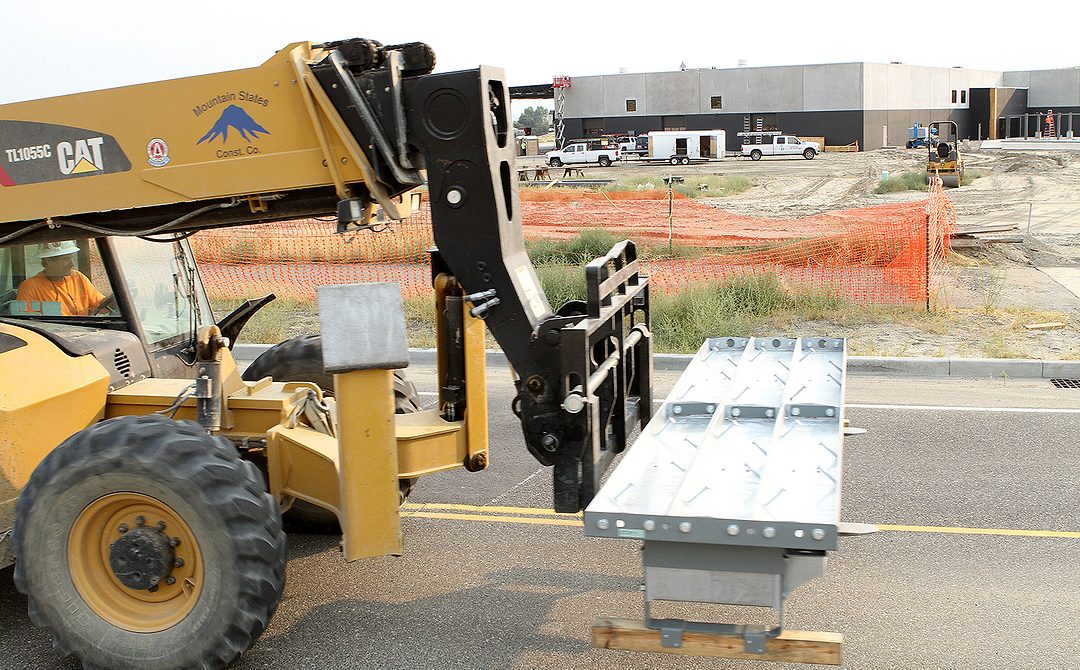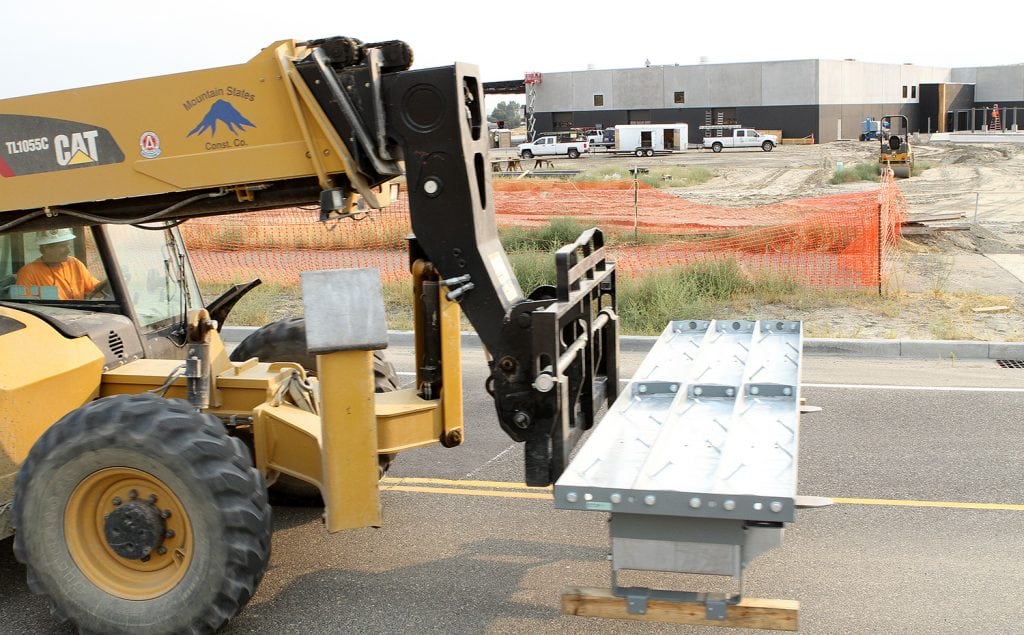
Home » Commercial real estate market: It’s hot
Commercial real estate market: It’s hot

May 6, 2018
Rusty Morse has been a part of the Tri-City commercial real estate scene for 25 years, and while he’s seen plenty of growth in the area, he said the last five to 10 years have been phenomenal.
“It just continues to grow,” said Morse, managing broker at Coldwell Banker Commercial. “I look at my production, and it’s just growing and growing every year. It’s quite amazing.”
Morse said the growth reflects a long career built over time, but also is an indication of the commercial real estate activity and deals happening in the Tri-Cities right now.
In the last year, Morse sold three properties in the $4 million to $5.5 million range. One was a $4 million medical office building in Kennewick, another was a three-story building with a basement in Richland that sold for almost $4.5 million.
“More often than not, what I’m involved with are investors looking for property with leases in place with cash flow so they can buy that with investment opportunity,” Morse said. “And I work a lot with sellers. I tend to focus on listing properties.”
Morse currently has about $20 million in listings, including 86 acres of land west of Steptoe Street in Kennewick that he plans to break into parcels that vary in sizes to meet the needs of individual businesses. He doesn’t expect his work to slow down. And while it’s impossible to predict the real estate market’s future, the Tri-Cities is inching toward the 300,000-population mark, which will lead to big changes.
“For our metropolitan statistical area, once you get to 250,000, you’re literally and figuratively on the map,” Morse said. “So instead of a little black dot on the map, you have a bigger dot. And it makes a difference, because a lot of large retailers and service providers, they have to have a demographic and population base before they even consider going to that metropolitan area. And we’re really close to that number. I’m sure we’ll hit it within the next five years or so.”
 A worker delivers metal during construction of the new Double Canyon Winery in West Richland. (Photo: Paul T. Erickson)
A worker delivers metal during construction of the new Double Canyon Winery in West Richland. (Photo: Paul T. Erickson)Dirk Stricker, a designated broker, has helped facilitate commercial sales and leasing in the Tri-Cities since 1990 and also expects continued growth in the region.
“I’ve seen a lot of younger people making the move to establish a franchise and growing it,” said Stricker, who added that people are moving to the area because of the job opportunities that come with commercial real estate growth.
Commercial real estate development supported 3.3 million U.S. jobs in 2016 and contributed $465 billion to Washington state’s gross domestic product, according to the National Association of Industrial Office Parks.
But there are business sectors in the Tri-Cities that can’t grow as quickly because of limited inventory. The market that’s in the most demand with the fewest amount of buildings is industrial, Stricker said.
“We’re not an industrial town. There are mid-level service companies that are looking for space, and we just don’t have it. For plumbers and HVAC and contractors, there’s nowhere for them to go and nothing to buy. You go out to King City in Pasco and you see all the development and warehouses out there getting leased up right away and getting sold,” Stricker said. “There’s plenty of retail. There might be room for an upscale grocery store in Richland or Kennewick west.”
SVN Retter & Company’s Scott Sautell would love to see the Tri-Cities get a Trader Joe’s, a grocery store chain based in California and owned by a German private equity family trust. He agreed the Tri-Cities is lacking in industrial space and said good cash-flowing, income-producing properties are a little harder to get your hands on here.
“A lot of investors are looking for a deal around here, and that’s where they lose the edge to folks looking from the west side. Everything we have is a deal compared to what they see over there,” said Sautell, who has been in the commercial real estate business for seven years. “So if you want it, you need to act quickly.”
Sautell said many of his investors are leaning toward real estate because it’s a tangible asset, but multi-family homes, such as duplexes and apartments, are a hot commodity and typically don’t stay on the market for long.
With the market as strong as it is right now, Sautell said many tenants are making the transition to landlords because banks are more willing to lend.
“Banks are out there wanting to loan money right now,” Sautell said. “Typically, someone getting into business, just starting up, they don’t have the wherewithal to own. They lease until their business looks good enough on paper. That’s the key — business is great. Businesses are succeeding. Regular businesses, a contractor, an accountant, or whatever it may be, they’re doing well enough in their day-to-day operations that they’ve become real estate investors. It’s a pleasure to serve and facilitate for those who look to better their businesses in our community.”
Construction + Real Estate
KEYWORDS focus real estate construction 2017





